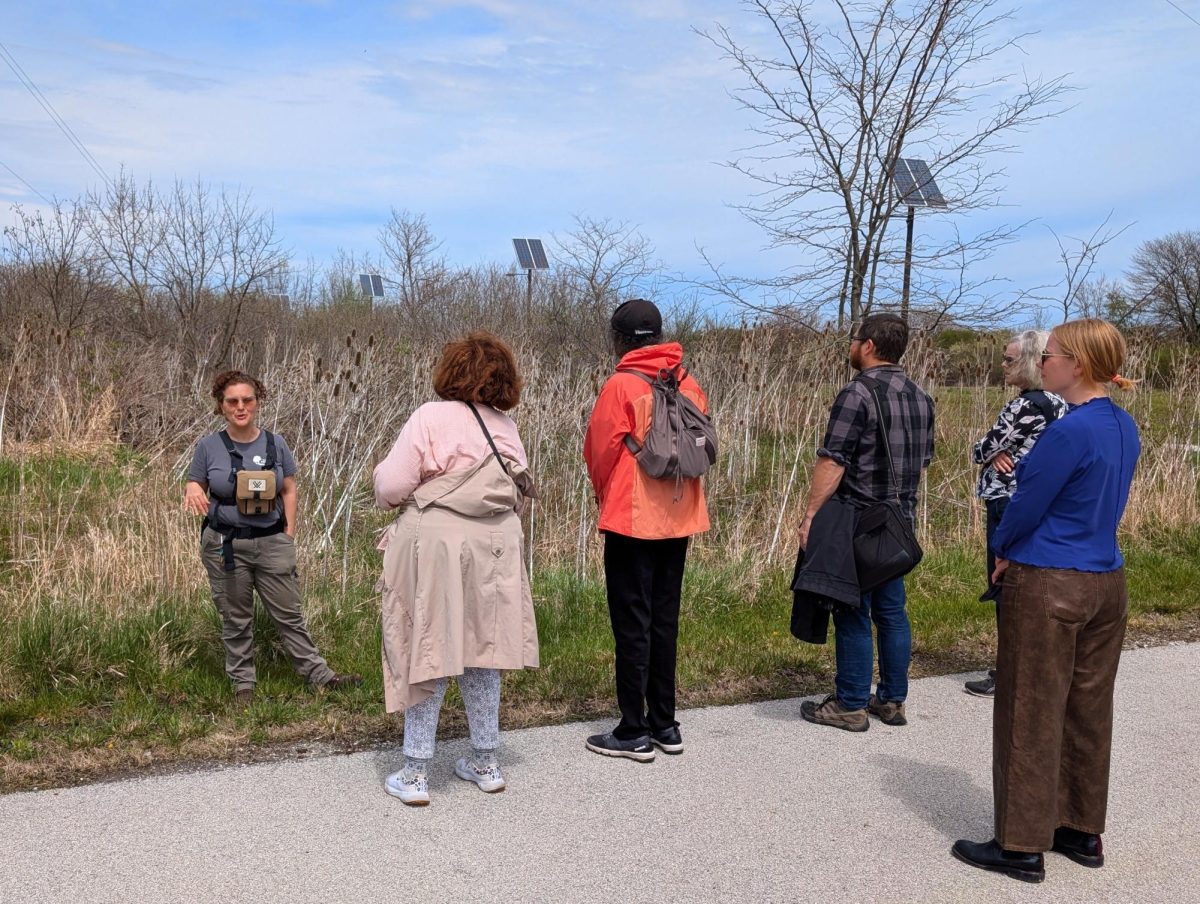Governors State University students, staff, faculty, and community members enjoyed a talk in the Social Justice Building before taking a walk on Earth Day 2025.
The panel and dialogue included GovState professors Dr. Ben Almassi, Dr. Eliot Fackler, and Dr. Jelena Radovic-Fanta, along with Negin Almassi from the Cook County Forest Preserves.
Ben Almassi, a philosophy professor, discussed historical and contemporary perspectives on fire management. After centuries of destruction and neglect of US forests, there has been recent recognition of the value of Indigenous fire stewardship. This is leading to collaborative efforts among government agencies, tribes, and organizations such as the Nature Conservancy.
Ben Almassi highlighted examples of burning practices led by Indigenous groups on Stockton Island in Lake Superior and at the University of Minnesota Cloquet Forestry Center. These initiatives aim to revitalize fire culture, facilitate intergenerational learning, and restore ecological balance while respecting tribal sovereignty and cultural traditions. He emphasized that acknowledging and incorporating Indigenous knowledge of fire is crucial for effective land management and ecological repair, moving away from past policies that criminalized cultural burning practices.
Radovic-Fanta, an associate professor of anthropology & sociology, and Fackler, an assistant professor of history, discussed the ongoing water crisis in University Park. After years of lead contamination in the water, Aqua Illinois continues to supply water to the residents of University Park, including those at GovState. While the water is reportedly safe to drink now, the crisis revealed some deeper problems in the system.
Along with a team of his graduate students last semester, Fackler took a deep dive into multiple perspectives of the University Park water crisis. The class examined the evolution of the village and explored how capitalism and environmental racism contributed to the current situation.
Radovic-Fanta and her students are examining how the water crisis has impacted well-being and community. Through interviews with University Park residents, they are capturing the stories of community members as they reflect on life without access to clean water during the pandemic, and as they learn how to trust the water that comes from their faucets today.
Negin Almassi has worked for the Forest Preserves of Cook County since 2012, serving as a naturalist for ten years and currently as a resource management training specialist. She also leads the Singing Insects Monitoring Program. She explained how her work as an entomologist has deeply influenced her approach to teaching.
Negin Almassi used the complex soundscapes of cicadas as an example to demonstrate the importance of active listening in understanding the natural world. She told the audience how observing and interpreting these insect calls can teach individuals to pay closer attention to their environment and the subtle communication within it, which is a skill she encourages in all her training programs.
After the talk, Negin Almassi took the audience for a walk on campus to focus on the sounds of spring.

